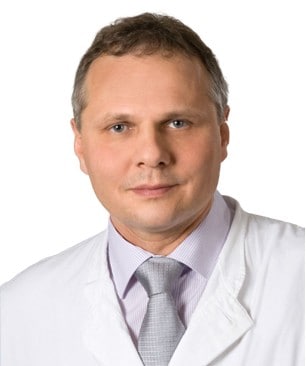
Anxiety Treatment in Dubai. Introduction
Everyone experiences nervousness, or anxiety under certain circumstances. It might relate to a test situation, a job interview, or coming life changes. In today’s world, especially in big cities like Dubai, there is a great deal of professional and social pressure. Long working hours, family obligations and no proper life-work balance are the breeding ground for stress and anxiety.
CHMC is German Psychiatric Clinic in Dubai treating the entire spectrum of mental health conditions, among them anxiety. The step preliminary to treatment of any anxiety disorder is in-depth diagnosis necessary to exclude other psychiatric conditions appearing with similar symptoms.
This article will help you understand the difference between “normal” or “physiological” anxiety and anxiety disorders, such as generalized anxiety, phobias, or panic attacks. You will also find here information on treatment options for anxiety offered by CHMC in Dubai.
Anxiety in Modern Society
Individuals living and working in big dynamic cities like Dubai, are exposed to high work strees. The have performance reviews and quotas; additionally, many adults face pressure to perform in multiple roles, such as meeting the demands of work, marriage, and being a parent. School age children and college students often feel pressure. Standardized tests, GPAs, and trying to fit in with friends put a high stress on students to perform, above and beyond.
Feeling anxious is a normal reaction to stress. It prompts us to prepare for important events, follow through with assignments and duties, and plan our time carefully. In itself, experiencing anxiety is not a negative thing. A touch of anxiety can serve us well. It gives us the ability to able to sense danger, be extra careful about our environment, and engage in the “fight or flight” response if in danger. However, the accumulation of stress, long working hours, lack of sleep, partnership problems can easily overextend individual’s coping abilities, which might end in an anxiety disorder or depression.
We must keep in mind that there is a real difference between having anxiety in a situation and an anxiety disorder. When someone has a constantly present intense anxiety (generalized anxiety disorder) and/or excessive anxiety coming in waves (panic attacks) will be present with debilitating symptoms.
Many people with anxiety disorder will begin to avoid situations that trigger or worsen their symptoms. This can initiate a vicious circle with damaging effects on a person’s life and emotional health. In order to stop the disorder spiralling down it’s necessary to start the therapy for anxiety which should be provided by a certified health care professional.
Categories of Anxiety Disorders listed by the American Psychological Association (APA)
The American Psychological Association (APA) has created a list of the major types of anxiety disorders and their characteristics:
Generalized Anxiety Disorder (GAD). The most common anxiety in Dubai
People with Generalized Anxiety Disorder (GAD) have returning fears or worries. The reason for the generalized anxiety may be difficult to identify. But the fears and worries are very real and often keep individuals from focusing on daily tasks.
Criteria of GAD (Generalized Anxiety Disorder)
Individuals with GAD display excessive or disproportionate feelings of anxiety or worry for at least six months almost daily. They excessively worry about different things, such as finances, work, health, and other possible life uncertainties. Consequently, this worrying causes significant distress in day-to-day functioning, including social life, studies and work.
GAD symptoms include
- feeling agitated, or on-edge,
- fatigue,
- having troubles concentrating,
- mind going blank,
- irritability,
- muscle tension,
- troubled sleep (falling or staying asleep).
Panic Attacks and Panic Disorder
The picture “The scream,” the best-known artwork of Edvard Munch, painted in 1893, is the best illustration of a panic attack. The painting is the artistic expression of a panic attack.
Panic attacks appear suddenly causing intense unprovoked feelings of terror and dread. Panic attacks coming constantly over longer period of time are called “Panic Disorder.” People who suffer from the Panic Disorder develop strong fears about when and where their next panic attack will occur, increasingly restricting their life activities.
Panic attack symptoms include:
- a pounding heartbeat, heart palpitations, or a faster heart rate
- sweating
- shaking or trembling
- feelings of shortness of breath or choking
- feelings of imminent doom
- feelings of losing control
Phobic Anxiety
A related disorder involves phobias, or intense fears, about certain objects or situations. Specific phobias may involve things such as fears of certain animals or fears of flying (flying phobia). Social phobia involves fear of social settings or public places.
Anxiety in Obsessive-compulsive disorder (OCD)
The Obsessive-Compulsive Disorder (OCD) is characterized by persistent, uncontrollable, and unwanted feelings or thoughts (obsessions) and routines or rituals (compulsions). The affected individuals engage in ritualistic behaviours to try to prevent or rid themselves of the disturbing thoughts and the associated anxiety.
Examples of common compulsions include washing hands or cleaning house excessively for fear of germs. Once the patient stops the rituals, he will immediately experience anxiety. Hence, the cycle continues.
Anxiety in Post-Traumatic Stress Disorder (PTSD)
Suffering severe emotional trauma, such as from a natural disaster or serious accident or crime, may experience PTSD. Thoughts, feelings and behaviour patterns become seriously affected by reminders of the event. Often months or even years after the traumatic experience.
Symptoms such as extreme fear, shortness of breath, racing heartbeat, insomnia, nausea, trembling and dizziness are common in anxiety disorders. Although they may begin at any time, anxiety disorders often surface in adolescence or early adulthood. There is some evidence that anxiety disorders run in families; genes as well as early learning experiences within families seem to make some people more likely than others to experience these disorders.
Diagnosing Anxiety at CHMC in Dubai
The process of diagnosing an anxiety disorder begins with a thorough evaluation of the patient’s medical history, known as an anamnesis. The anamnesis gathers crucial information about the onset, nature, and severity of the anxiety symptoms. However, before a definitive diagnosis of an anxiety disorder can be made, the psychiatrist must rule out any underlying physical causes. These could include conditions affecting the lungs, cardiovascular system, or central nervous system. Additionally, the presence of other concurrent mental health problems must be assessed.
A comprehensive diagnostic approach involves a physical examination, laboratory tests, and an Electrocardiogram (ECG) to detect physical illnesses. Depending on the patient’s medical history, specific symptoms, or preexisting conditions, further investigative tests such as lung function tests, electroencephalogram (EEG), or Magnetic Resonance Imaging (MRI) may be recommended.
Anxiety Treatment at CHMC in Dubai. The Holistic Approach
Our treatment of anxiety focuses on a quick relief from the symptoms, while gradually reducing the frequency and severity of anxiety episodes. The long-term objective is to achieve for the patient anxiety free life without further necessity of treatment.
In less severe anxiety cases we offer psychotherapy as a stand-alone treatment method. However, in more severe forms of anxiety the treatment with medication provides a quick relive paving the road for the psychotherapy.
In the majority of patients suffering of anxiety, medication and counselling will best benefit them. For such patients we make a combined effort between the treating psychiatrist, the counsellor, and the patient during which progress is noted and challenges discussed.
Anxiety Treatment with Psychotherapy at CHMC in Dubai
If you are suffering from excessive anxiety, you can rest assured that our team of mental healthcare professionals at CHMC will provide state-of-the art treatment. A crucial goal of psychotherapy is equipping you with effective coping mechanisms.
You can get treatment for anxiety from our psychotherapist, counsellor, psychologist, or psychiatrist. Typically, in the case of mild or moderate anxiety working with a qualified counsellor, psychologist, or psychotherapist is sufficient. Available treatment methods are: Cognitive Behavioral Therapy (CBT), Exposure Response Prevention (ERP), Systematic Approximations, and psychodynamic psychotherapy.
Anxiety Treatment with Medication at CHMC in Dubai
When anxiety is severe or extremely severe, it is important to seek the services of a psychiatrist to establish a diagnosis and consider pharmacotherapy (using medication in addition to counselling). The most effective medications used in the treatment of anxiety are the antidepressants.
A psychiatrist is a mental health professional who is a medical doctor with specialization in mental health disorders. A psychiatrist is uniquely qualified to examine possible physical reasons for anxiety and to prescribe medications that act on the brain. It is during the psychiatric evaluation that a mental health diagnosis is established. It is not unusual for people suffering from anxiety to also have depression. After establishing a clear diagnosis a treatment plan will be developed in close cooperation with the patient.
Anxiety Treatment in at CHMC in Dubai. Summary
Normal anxiety, also called “physiological anxiety” is a part of the human psychic apparatus. Experiencing anxiety under certain circumstances, like exams, a job interview, as well as in dangerous or life-threatening situations is normal. It warns from potential dangers and serves in the “fight or flight” reaction protecting individual’s life. Such “normal” anxiety doesn’t require any treatment.
However, in cases where the anxiety appears constantly, like generalized anxiety or in intervals, like panic attacks, we speak about “anxiety disorders.”
There are distinct forms of anxiety disorders from which the most common are Generalized Anxiety Disorder (GAD), Panic Disorder and Phobic Disorders such as Social Phobia or Flying Phobia .
Before commencing the therapy it’s necessary to secure the diagnosis of anxiety disorder. The meticulous assessment encompasses medical history, physical examination, and various diagnostic tests to exclude underlying physical causes and ensure an accurate diagnosis.
The treatment for anxiety disorders typically involves a combination of medication and psychotherapy. In mild cases psychotherapy treatment as a stand-alone method might be sufficient.
This multifaceted approach is crucial for securing diagnosis and developing an appropriate treatment plan tailored to the individual’s needs.

DR. GREGOR KOWAL
Senior Consultant in Psychiatry,
Psychotherapy And Family Medicine
(German Board)
Call +971 4 457 4240

Dr. Annette Schonder
Clinical Counsellor,
Marriage Therapist, Hypnotherapist
(American Board)
Call +971 4 457 4240
